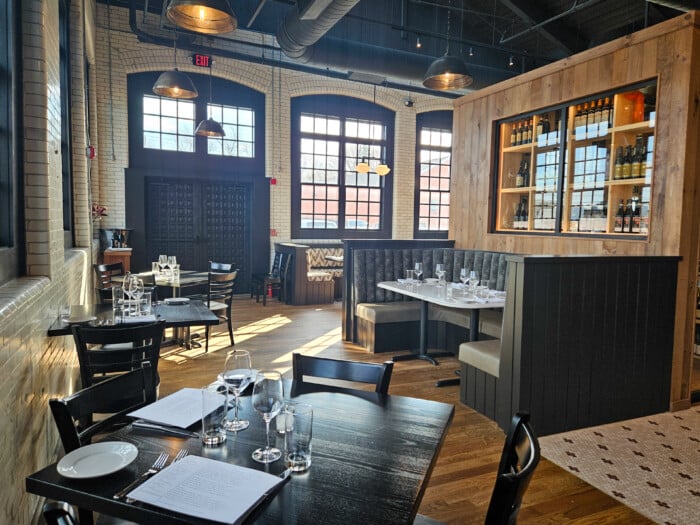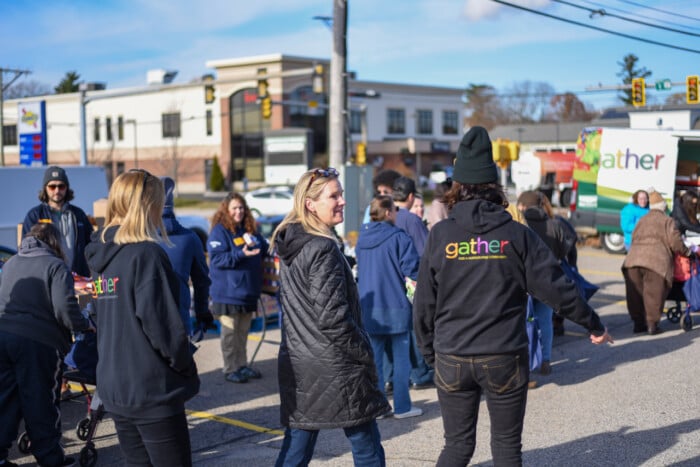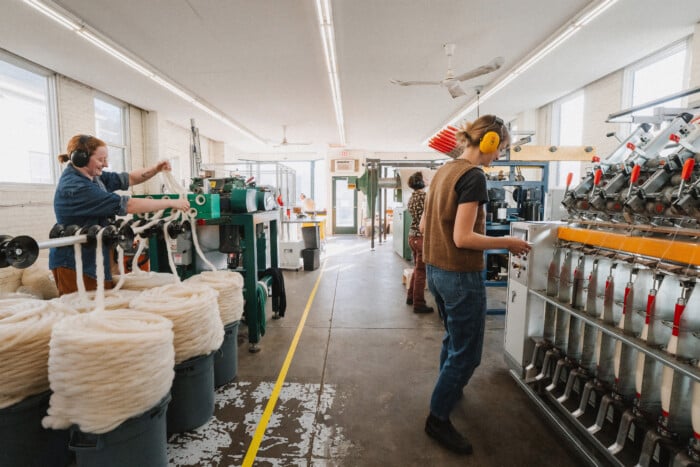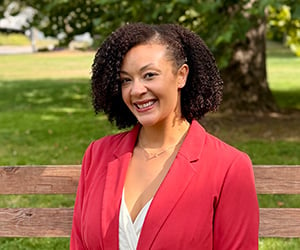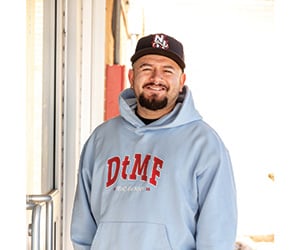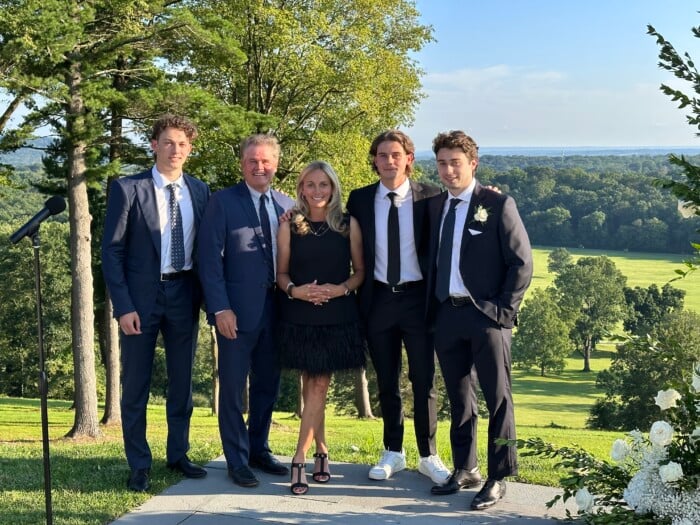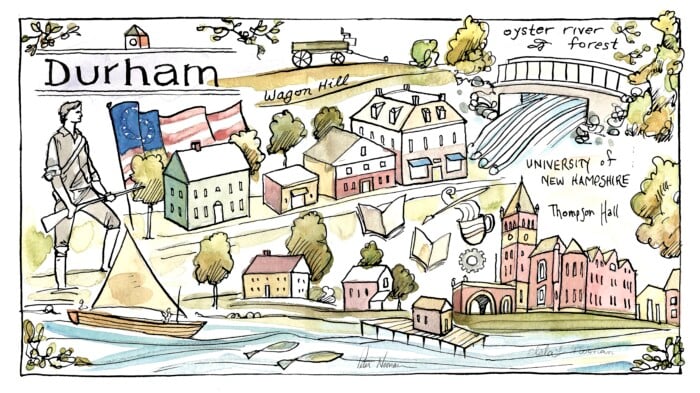A Community Coalesces
Seacoast Chabad Jewish Center continues its growth with new café

The Brooklyn Café opened in July on the campus of Seacoast Chabad Jewish Center.
In 2018, Rabbi Berel Slavaticki and his wife, Rochy, moved from New York, where there was a large Jewish population, to Durham, New Hampshire.
“We were looking for a place that the Jewish community could use some growth and potential,” Slavaticki says.
Their goal was to offer Jewish education and programs in an area where it was lacking.
“When we moved here, people were like, ‘What? There’s no potential there. There’s no hope here. There are no Jews here,’” he says. “And we felt like there were. We made our research, and we knew that there’s a nice community. Maybe not a lot of Jewish people that are noticeable on the outside, but a lot of Jewish people that are looking for more connection.”
In the past six years, they have found and fostered those connections.
“We started small, but then the demand grew and grew,” Slavaticki says.
What began with Jewish student outreach at the University of New Hampshire, has now outgrown two different storefronts and purchased a campus in Newington where they run the Seacoast Chabad Jewish Center.
Slavaticki was born in Belgium and worked on his rabbinical studies in Belgium, Israel, Maryland, Michigan and New York. He’s taught and led services in several countries and multiple U.S. states. Rochy Slavaticki was born in New York and earned a degree in special education.
The center offers weekly Shabbat and Kiddush services, a women’s circle, a teen group, Mentch Club and other programs.
A Hebrew school that started two years ago with two children now has 40 students. They also have adult educational programs.
Seacoast Chabad is also involved in charitable work, including giving away donations of backpacks of school supplies to students in need, and a weekly meal program.
In July, the center opened an on-site kosher bakery, The Brooklyn Café.
“When you think about a kosher café or kosher places, you usually think about the larger cities: Boston, New York. They have larger Jewish communities,” Slavaticki says. “But our vision was to try to create something, which is kosher, obviously, but to make it appealing and desirable to all the wider community.”
The bakery offers bagels, pastries, meat-free pizzas, falafel, fries and drinks including soda, coffee and tea.
While it was important that the café was kosher to serve Jewish people, Slavaticki says, they also wanted items and an atmosphere that would bring in customers from the wider community so it’s sustainable.
“People are excited about the food, obviously,” he says. “It’s beautiful to see that, maybe, I would say 85% to 90% of the people that are coming in are actually not Jewish people.”
The café is a resource for the Jewish community to access cultural foods.
“Food is a big part of religion,” Slavaticki says. “It’s very good that we have a place now for people to get the customary things like challah bread. Come Hanukkah, Purim or other Jewish holidays, there will be a place that we can have. People won’t have to go to Boston anymore.”
The Brooklyn Café is set up as a nonprofit, with the proceeds going to locals in need. It’s been so popular, Slavaticki says he’s already been getting requests for a Jewish deli, since meat products need to be handled separately from food that contains dairy in the Jewish religious tradition.
Just a few weeks after the bakery opened, Seacoast Chabad hosted the third annual New Hampshire Jewish Festival. The festival had vendors, food, games and activities, plus an array of entertainment. Moshe Reuven, a Billboard-charting singer, Noam Agami and the Klezmer Conservatory Band performed. Campers from Camp Yavneh in Northwood were also invited to participate.
“We wanted to get some young people to help add atmosphere,” Slavaticki says, “to make it more exciting.”
A goal to connect the Seacoast Jewish community has become a reality, with a growing campus and community outreach.
“Most people that are coming out to the Jewish Center, they don’t believe that this is actually happening,” Slavaticki says. “They thought it would never happen.”
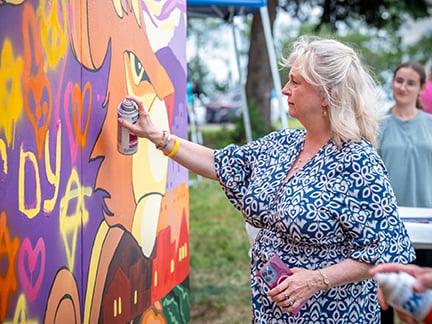
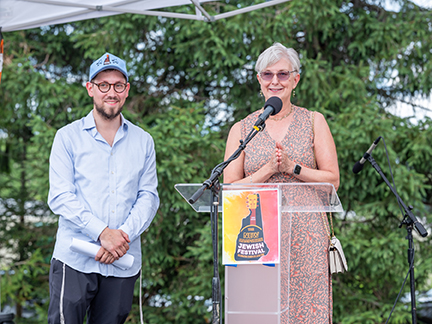
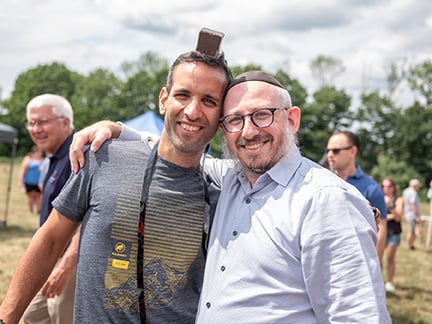

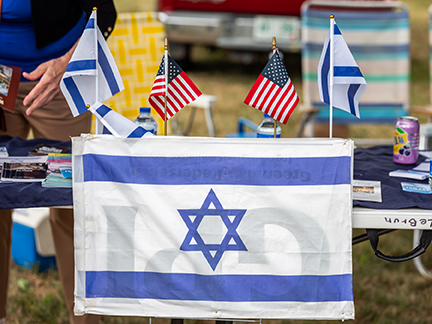
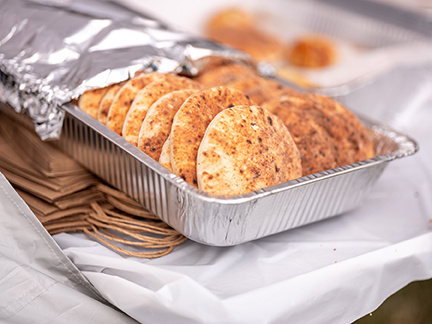
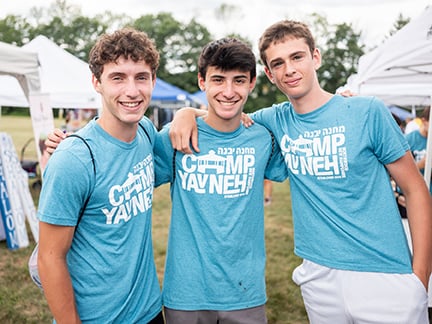
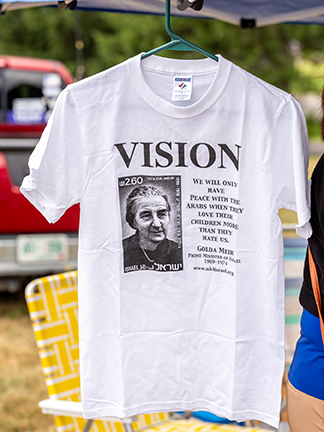

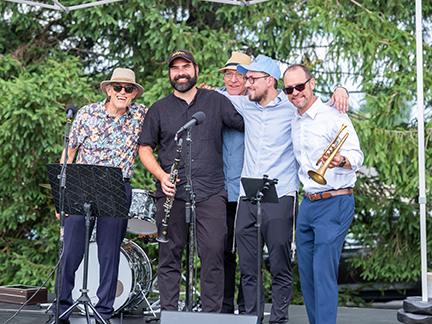
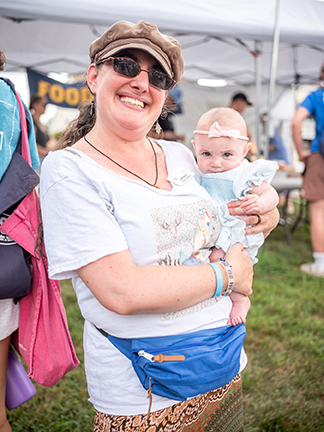
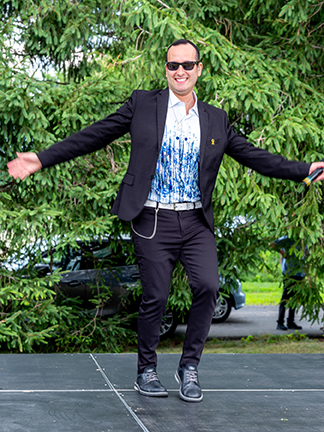
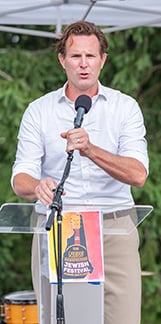

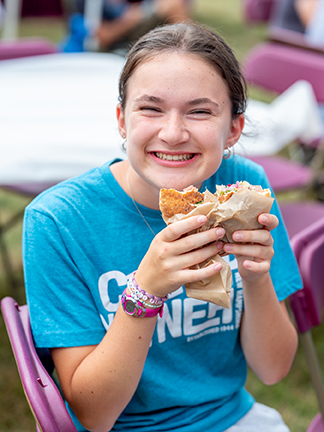
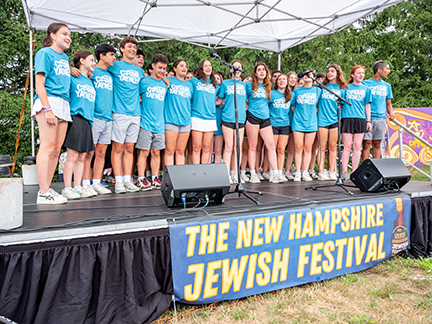
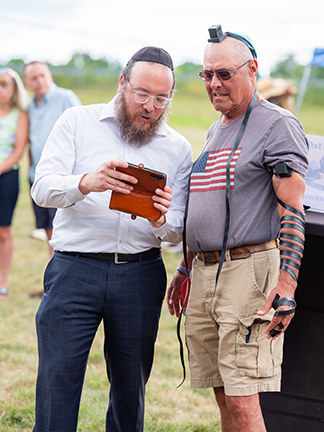
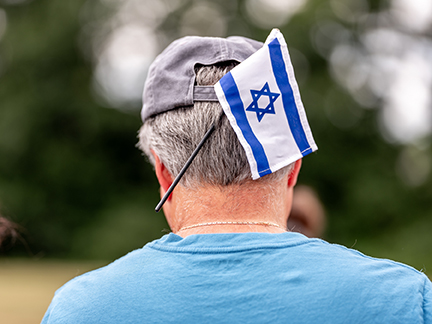
This article is featured in the winter 2024 issue of 603 Diversity.
603 Diversity’s mission is to educate readers of all backgrounds about the exciting accomplishments and cultural contributions of the state’s diverse communities, as well as the challenges faced and support needed by those communities to continue to grow and thrive in the Granite State.
